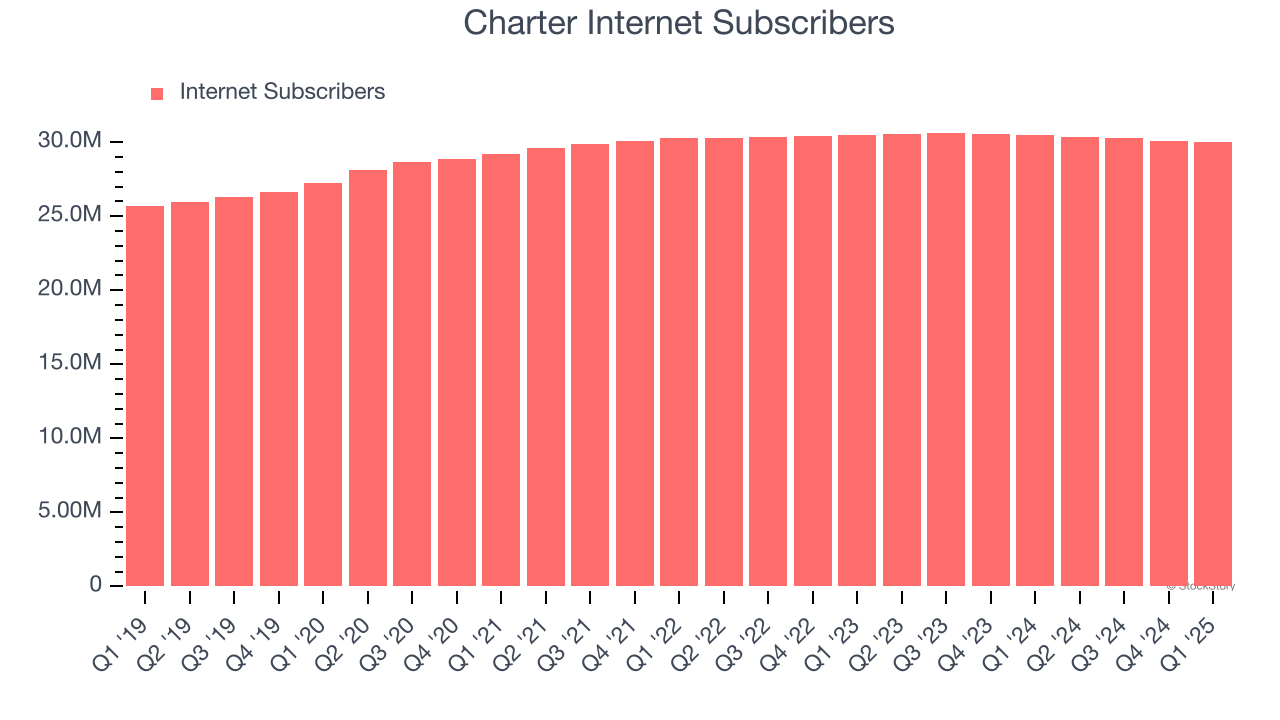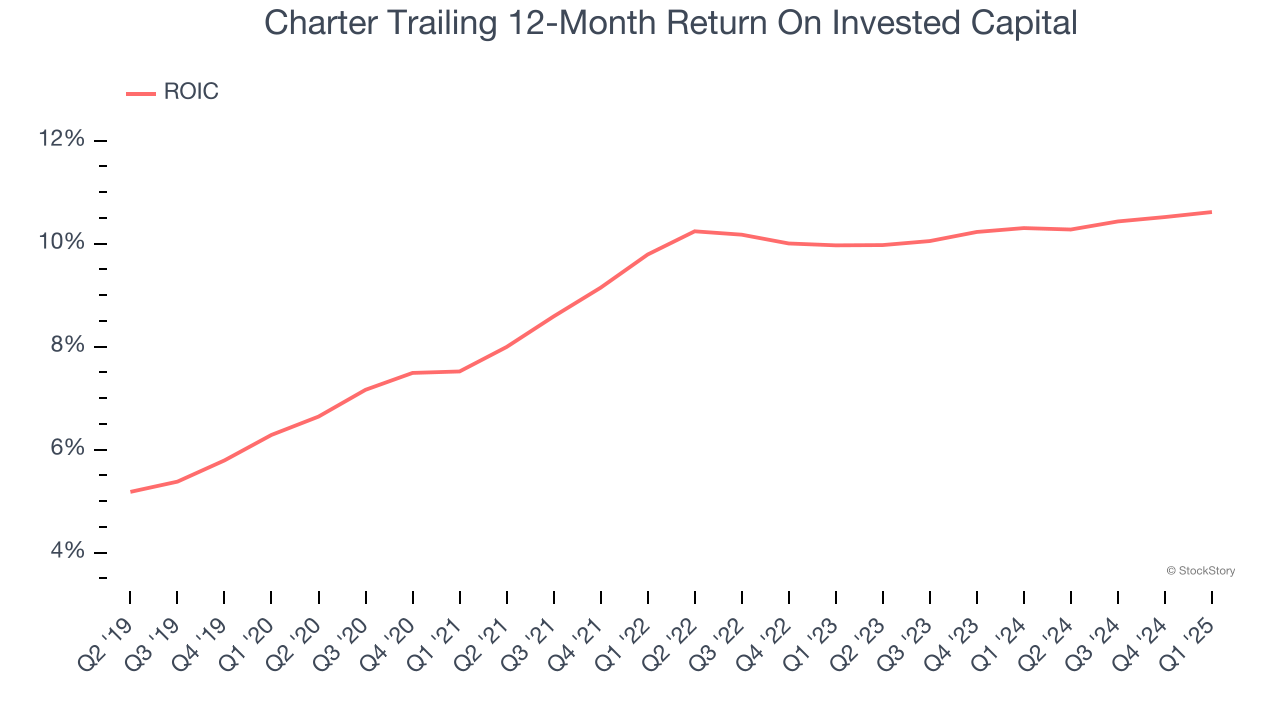
Charter’s 16.8% return over the past six months has outpaced the S&P 500 by 11.5%, and its stock price has climbed to $408.10 per share. This performance may have investors wondering how to approach the situation.
Is there a buying opportunity in Charter, or does it present a risk to your portfolio? Get the full breakdown from our expert analysts, it’s free.
Why Is Charter Not Exciting?
Despite the momentum, we're sitting this one out for now. Here are three reasons why we avoid CHTR and a stock we'd rather own.
1. Inability to Grow Internet Subscribers Points to Weak Demand
Revenue growth can be broken down into changes in price and volume (for companies like Charter, our preferred volume metric is internet subscribers). While both are important, the latter is the most critical to analyze because prices have a ceiling.
Over the last two years, Charter failed to grow its internet subscribers, which came in at 30.02 million in the latest quarter. This performance was underwhelming and implies there may be increasing competition or market saturation. It also suggests Charter might have to lower prices or invest in product improvements to accelerate growth, factors that can hinder near-term profitability. 
2. Projected Revenue Growth Shows Limited Upside
Forecasted revenues by Wall Street analysts signal a company’s potential. Predictions may not always be accurate, but accelerating growth typically boosts valuation multiples and stock prices while slowing growth does the opposite.
Over the next 12 months, sell-side analysts expect Charter’s revenue to stall, close to its 3.6% annualized growth for the past five years. This projection is underwhelming and implies its newer products and services will not accelerate its top-line performance yet.
3. Previous Growth Initiatives Haven’t Impressed
Growth gives us insight into a company’s long-term potential, but how capital-efficient was that growth? A company’s ROIC explains this by showing how much operating profit it makes compared to the money it has raised (debt and equity).
Charter historically did a mediocre job investing in profitable growth initiatives. Its five-year average ROIC was 9.6%, somewhat low compared to the best consumer discretionary companies that consistently pump out 25%+.

Final Judgment
Charter’s business quality ultimately falls short of our standards. With its shares outperforming the market lately, the stock trades at 10.6× forward P/E (or $408.10 per share). While this valuation is fair, the upside isn’t great compared to the potential downside. We're fairly confident there are better stocks to buy right now. Let us point you toward one of Charlie Munger’s all-time favorite businesses.
High-Quality Stocks for All Market Conditions
Donald Trump’s victory in the 2024 U.S. Presidential Election sent major indices to all-time highs, but stocks have retraced as investors debate the health of the economy and the potential impact of tariffs.
While this leaves much uncertainty around 2025, a few companies are poised for long-term gains regardless of the political or macroeconomic climate, like our Top 9 Market-Beating Stocks. This is a curated list of our High Quality stocks that have generated a market-beating return of 183% over the last five years (as of March 31st 2025).
Stocks that made our list in 2020 include now familiar names such as Nvidia (+1,545% between March 2020 and March 2025) as well as under-the-radar businesses like the once-small-cap company Exlservice (+354% five-year return). Find your next big winner with StockStory today.





